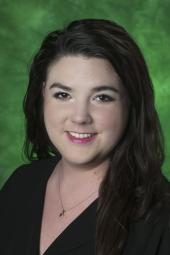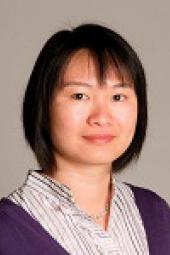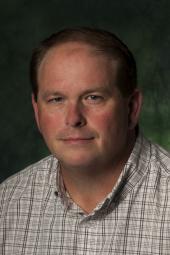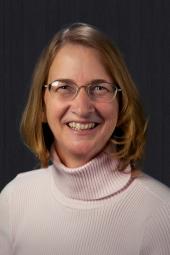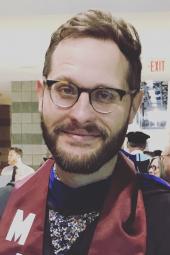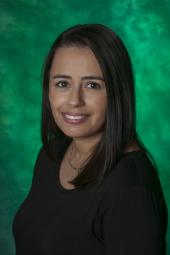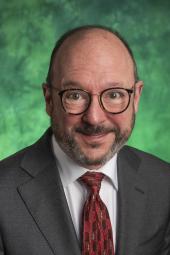 Main Menu Toggle
Main Menu Toggle
Qi Chen
Dr. Chen engages in doing research and teaching in the area of quantitative methods. Her primary quantitative research interests include Growth Mixture Modeling (GMM), Hierarchical Linear Modeling (HLM), and Structural Equation Modeling (SEM), and the application of these methods in longitudinal data analyses and mediation analysis. She is also interested in the application of these methods in educational and family-based data. Her interested substantive areas include children’s psychosocial functioning and self-regulation, school-based prevention, teacher-student relationship and peer relations, and the intersection of family and cultural contexts in shaping Asian American adolescent development.
Robin K. Henson
Robin’s background is a bit of winding road, but one he considers divinely guided by God. His early background was in youth ministry with undergraduate majors in Biblical studies and psychology from Evangel University (Springfield, MO). This evolved into a focus on counseling and masters degrees in general and clinical psychology, and eventually LPC licensure. Robin then earned a PhD in educational psychology at Texas A&M University, and this led to his current research and teaching focus on statistics, measurement, and research methodology. The LPC licensure was latter allowed to lapse due to a focus on methodology, but Robin still periodically works with counseling applications. More recently, Robin has completed a doctor of ministry (DMin) degree from Liberty University with a cognate in expository preaching and teaching. Robin is married to an incredible woman and has two awesome, young adult kids. In his spare time, Robin enjoys outdoor activities and being involved at Midway Church.
Terri Yip
Rhonda Sinderson
Jo Monahan
Jo Monahan supports the information needs of the faculty and students of the College of Education, provides individual or group training on information resources, and supports grant writing efforts within the college.
Daniel G. Krutka
Daniel G. Krutka, Ph.D. is Associate Professor of Social Studies Education in the Department of Teacher Education and Administration. A former high school social studies teacher in Oklahoma City, his research interests concern intersections of technology, education, and democracy. Dr. Krutka has authored over 75 peer-reviewed articles and book chapters in journals such as Harvard Educational Review, Computers & Education, Theory & Research in Social Education, and Teaching & Teacher Education among others. He was the lead editor of the 2018 book, "Keywords in the Social Studies: Concepts and Conversations" published in the Counterpoints: Studies in Criticality series by Peter Lang. He was awarded the 2016 Early Career Award by the Technology as an Agent of Change in Teaching and Learning special interest group (SIG) of the American Educational Research Association (AERA), the 2017 Outstanding Research Paper Award from the International Society for Technology in Education (ISTE), the 2021 McJulien Scholar Award from International Convention of the Association for Educational Communications and Technology (AECT), and the 2023 National Technology Leadership Initiative (NTLI) Fellowship Award from the College and University Faculty Assembly (CUFA) of the National Council for the Social Studies (NCSS). He is past chair of the Social Studies Research SIG of AERA and a past board member for the College and University Faculty Assembly (CUFA) of the National Council for the Social Studies (NCSS). He also hosts the Visions of Education podcast (VisionsOfEd.com) and founded the Civics of Technology project (CivicsOfTechnology.org). He earned his doctorate from the University of Oklahoma.
Miriam Chacon Boesch
Miriam C. Boesch, Ph.D. is an Associate Professor of Special Education. She received her Bachelor’s degree in Communication Disorders from Texas Tech University Health Sciences Center and her Master’s and Doctoral degrees in Special Education with an emphasis in Severe Disabilities and Augmentative and Alternative Communication (AAC) from Purdue University. Her dissertation was awarded the College of Education Outstanding Dissertation Award. Her research focuses on augmentative and alternative communication (AAC). Specifically, she engages in AAC research to assess teacher preparation needs, compare strategies suitable for individuals with autism and complex communication needs, and reduce challenging behaviors. Dr. Boesch teaches courses pertaining to autism, intervention strategies, and behavior management. She is also the co-author of the book: Implementing Effective Augmentative and Alternative Communication Practices for Students with Complex Communication Needs: A Handbook for School-Based Practitioners. Dr. Boesch also publishes in peer-reviewed journals, presents at national and international conferences, and currently serves on the editorial board for the journals Communication Disorders Quarterly and TEACHING Exceptional Children. She is the recipient of the 2014 College of Education Junior Faculty Research Award and the 2017 College of Education Faculty Teaching Excellence Award from UNT.
Alyssa Strong
Randy Bomer
Prior to arriving at UNT, Randy Bomer was chair of two departments and was the Charles H. Spence Centennial Professor of Education at The University of Texas at Austin, where he taught for 16 years. Before that, he was also on the faculty of Indiana University and Queens College of the City University of New York and, for five years, was the co-director of the Teachers College Reading and Writing Project at Columbia University in New York City.
He is a former president of the National Council of Teachers of English and was a member of the Board of Directors for the Literacy Research Association. He has been a recipient of the Edward Fry Book Award from the Literacy Research Association and was named an Outstanding Elementary Educator by the National Council of Teachers of English, along with various awards from universities where he has taught.
Dr. Bomer’s research is about the strengths, resources and knowledge that students bring with them to school, literacy curricula that build upon those strengths, and policies and perspectives that do or do not support teachers’ recognition of students’ existing understandings and capabilities.
He holds a Ph.D. in English Education from Columbia University and is the author of four books and many articles in academic and professional journals. Formerly a middle and high school teacher, he has consulted with urban school districts across the U.S. As dean of the UNT College of Education, Dr. Bomer supports approximately 200 faculty and staff members and 5,000 students in one of the largest colleges of education in Texas.
